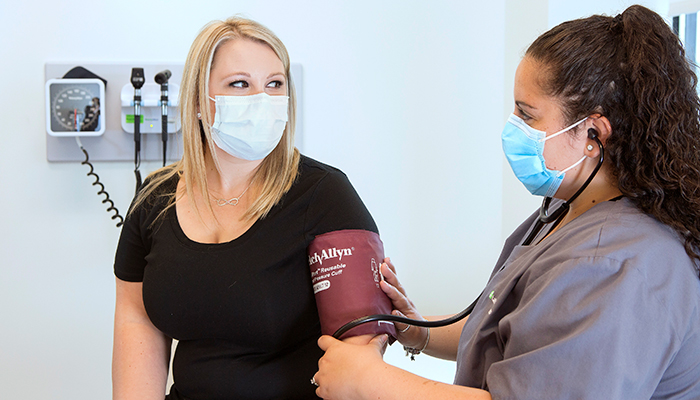The Importance of the Annual Well Woman Exam
BIDMC Contributor
APRIL 27, 2021
 It's not surprising to hear that your long-term health benefits from having regular check-ins with your doctor. Annual visits provide an opportunity to thoroughly review your medical history, while making sure you are up-to-date on important health screenings.
It's not surprising to hear that your long-term health benefits from having regular check-ins with your doctor. Annual visits provide an opportunity to thoroughly review your medical history, while making sure you are up-to-date on important health screenings.
"For women, annual visits include reviewing your gynecological and obstetric history, which may impact medical decision-making and risk factors for common medical conditions, such as high blood pressure and cardiovascular disease," says Sara McKinney, MD, Obstetrics/Gynecology. "These visits also allow the patient to be part of the decision-making process for preventive health services relevant to her age."
Your healthcare provider may recommend screenings for common medical issues such as thyroid disease, diabetes and high cholesterol. Monica Valero, MD, a breast surgeon in BIDMC's BreastCare Center adds, "Annual visits also serve as a learning opportunity to better understand and participate in breast cancer screenings. Aside from routine and standard care, these visits are a safe space to discuss sensitive and personal topics that often change from one decade to the next."
"You may want to discuss reproductive plans and starting a family," McKinney says. "Part of those discussions is often how to improve chronic medical conditions, any adjustments we should make to medications you’re taking, and the opportunity to talk about genetic testing."
With each decade of life, women encounter new health milestones and experiences. "Your healthcare provider is not only a safe confidant, but also an advocate and resource to connect you to any specialists or other resources that you may need," McKinney says.
"What feels 'normal' to you may be different for someone else," Valero adds. "Having familiarity with your overall health allows you to notice changes to bring these to your provider’s attention. Your doctor will be there for you every step of the way."
Family history plays a big part in what a physician will focus on with routine screenings, but there are key issues and screenings that are age-specific for all patients.
Age |
Concerns & Screenings |
|---|---|
| 13-18 years |
|
| 19-39 years |
|
| 40-64 years |
|
| 65 and older |
|
